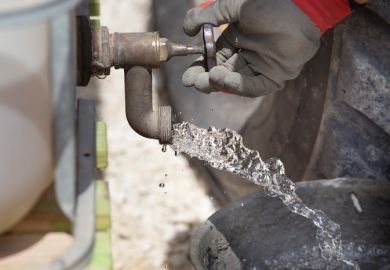Australian university places are proving harder to obtain following the federal government’s decision to scrap the demand-driven higher education system, with offers to domestic undergraduates declining for a second successive year.
Newly released data show that offers to new undergraduate students fell 1.5 per cent this year after sliding 1.9 per cent in 2018.
Socioeconomically disadvantaged students appear to have been hit particularly hard by the recapping of places. Offers to would-be undergraduates from the poorest quartile of the population fell by 5 per cent, compared with drops of 2.9 per cent among those from medium socioeconomic backgrounds and 0.3 per cent for people from richer neighbourhoods.
University places in health disciplines have also proven particularly difficult to obtain, with the field attracting more than 26 per cent of applications but just 23 per cent of offers. Health was the most competitive of the broad fields, with just 72.9 per cent of applications resulting in offers.
The figures are outlined in this year’s Undergraduate Applications, Offers and Acceptances report. It covers university places negotiated through Australia’s five tertiary admissions centres and direct applications to universities, up until mid-May.
The results reflect the difficult choice facing universities struggling to meet the ageing population’s increasing demand for health practitioners. Health-related courses tend to be expensive to teach – unlike society and culture, which attracted fewer applications than health but generated more offers.
Overall, domestic undergraduate applications declined by 1.3 per cent in the wake of a 1.5 per cent fall in 2018. The government attributed the drop to economic factors.
“Australia’s strong jobs market is…having an impact on university application rates, with the slight fall in applications reflecting more people joining the workforce,” education minister Dan Tehan said.
However, the report shows that the decline in applications occurred almost exclusively among school leavers. Economic upticks mainly tend to affect older applicants, who are less inclined to pursue tertiary education when job prospects improve.
Mr Tehan highlighted advances in indigenous Australians’ access to tertiary education, with applications increasing by 3.3 per cent this year and attracting 2.8 per cent more offers of places.
He said that schemes to foster Aboriginal people’s interest, such as the Indigenous Student Success Programme and the Higher Education Participation and Partnerships Programme, were paying dividends. Indigenous university enrolments had increased by 45 per cent since 2013 to almost 20,000.
Comprehensive higher education student data from 2018, which have also been released, show that international enrolments likewise increased – offering proof that Australia “continues to offer a high-quality education”, Mr Tehan said.
The 2019 Graduate Outcomes Survey report, which has also been published, says that employment rates have declined slightly among recent university graduates. This contrasts with improvements for “more established” people three years out from graduation.
The report says that the figures reflect the “softening” labour market early this year. “Graduates newly entering the workforce and with less work experience generally experience greater difficulty finding work,” it says. “This is consistent with the broader long run trend since the global financial crisis.”
Mr Tehan said that the figures helped explain why the government had decided to make graduate employment the primary metric for its performance-based university funding scheme, which commences next year. “We want universities to strengthen their focus on producing job-ready graduates with the skills to succeed in the modern economy,” he said.
Register to continue
Why register?
- Registration is free and only takes a moment
- Once registered, you can read 3 articles a month
- Sign up for our newsletter
Subscribe
Or subscribe for unlimited access to:
- Unlimited access to news, views, insights & reviews
- Digital editions
- Digital access to THE’s university and college rankings analysis
Already registered or a current subscriber?








